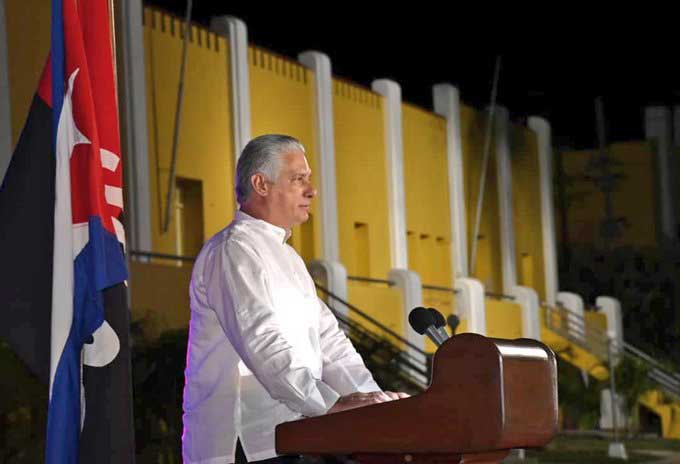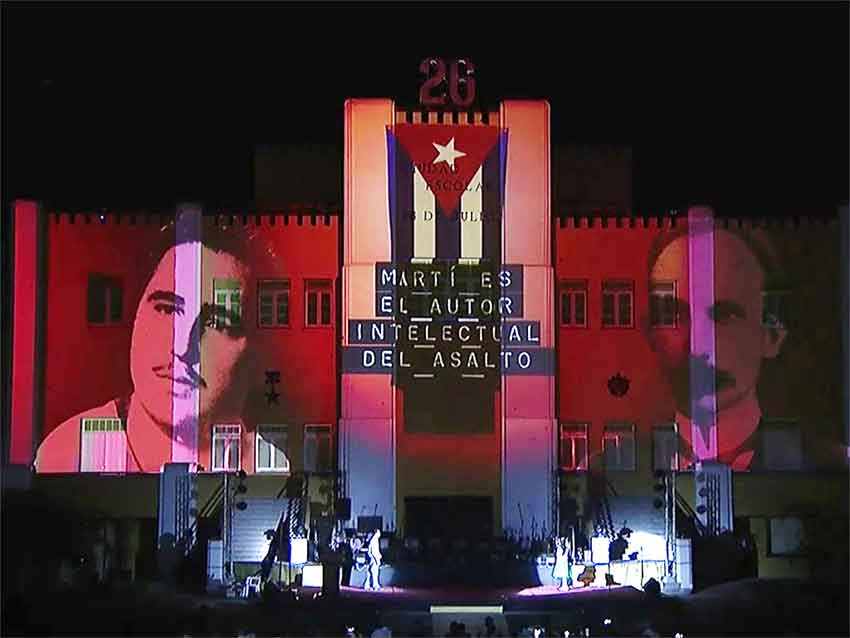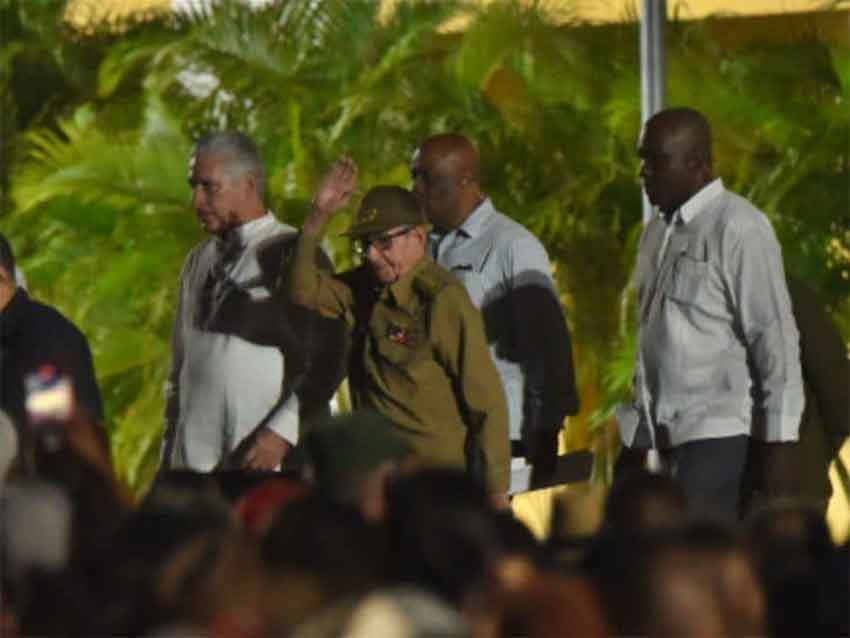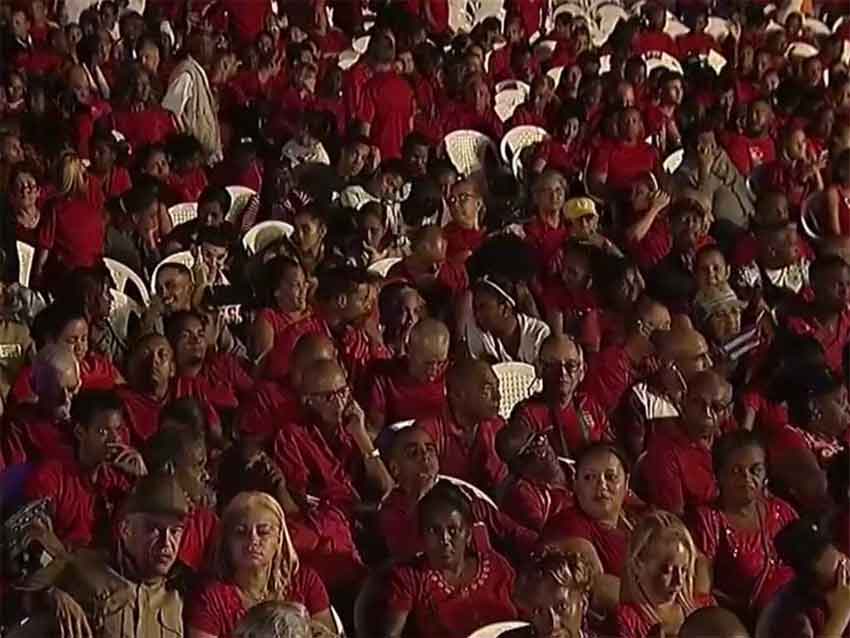
The First Secretary of the Communist Party and Cuban President, Miguel Díaz-Canel, affirmed here today that setbacks can become a victory, closing the commemoration for the 70th anniversary of the assault on the Moncada Barracks.
Santiago de Cuba.- In his words, the Head of State alluded to that resounding prediction of Fidel Castro, who led the group of young combatants, that on July 26, the audacity of the attack on the military fortress that after its momentary failure meant the beginning of the decisive stage for the revolutionary triumph.
The president referred to the intensification of the hostility of the US government, expressed in five main harassments, since the arbitrary inclusion of Cuba among the countries that support terrorism, which has become an obstacle for economic transactions with the world.
The application of title three of the Helms-Burton Act, aimed at hindering foreign investment, was another of the harmful and opportunistic practices mentioned, as was the persecution of fuel supplies in a clear violation of international law that affects life in the nation.
The other two imperial measures listed by the president were the attempt to discredit Cuban medical collaboration in the world and affect income through this channel, as well as prohibitions on the relationship of the North American tourism sector with its counterpart in the country.

Díaz-Canel said that those who accuse the government of being a dictatorship should approach the history of murders and torture that occurred after the assault when only six young men fell in combat and 55 were ruthlessly killed during a week that filled the city with horror.
The fight against hatred, violence, and enemy perversity, along with the desire to achieve levels of prosperity and economic development were enunciated by the president as other Moncadas that are the responsibility of current generations of Cubans.
When thanking the solidarity activists from several countries for their participation in the act, he considered this accompaniment as also part of the resistance of the Revolution, amid difficult circumstances.
The results achieved by this province and those of Cienfuegos, Sancti Spíritus, Matanzas, and Ciego de Avila indicate that progress is being made, but without ignoring the dissatisfaction of the population and the need to improve management at all levels, Díaz-Canel noted.
There is no better sign to accompany such a glorious day than the dawn lighting up the old military polygon, as the early morning progressed after the commemoration began, at exactly the same local time, 05:15, as the beginning of that action.
CUBA CELEBRATES 70 YEARS OF THE ASSAULT ON THE MONCADA BARRACKS
At the same time, 05:15 local time, that 70 years ago Fidel Castro and young revolutionaries stormed the Moncada Barracks in pursuit of overthrowing Fulgencio Batista, Cubans evoked today the gestation.
In the polygon of the old military fortress converted into a school by the Revolution, some 10,000 people from Santiago gathered to celebrate National Rebellion Day, accompanied by Army General Raúl Castro, one of the combatants of the heroic action.

Among the participants, also, Commander of the Revolution Ramiro Valdés, another of those involved in the epic that tried to “take heaven by assault” on that early morning of Carnival Sunday.
The first secretary of the Communist Party and President of the Republic, Miguel Díaz-Canel, also led the commemoration, which began with a cultural presentation, in which the emblematic Santiago conga with its drums and its Chinese bugle imitated those festivities in the city.
Actors Claudia Alvariño and Denys Ramos recited the poem “It Was the Morning of Santa Ana," by Jesús Orta Ruiz, the Indio Naborí, who has accompanied this endearing remembrance of Cubans for decades. (PL)






